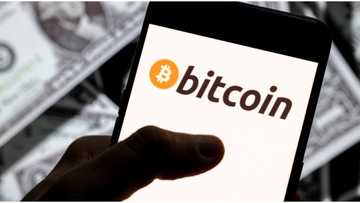Lawsuit: Blackmailing Text Messages, Faulty Repayment Issues Pit Loan Apps Against Customers
- Customers are now being blackmailed with messages from Nigerian loan apps whenever they fail to meet their payment issue
- Loan apps are frustrating payment of the debt by customers as in-app transaction often doesn't work according to complaints of users, and a lawyer says they can sue the creditors
- The faulty payment issue has increased the debt burden of borrowers who complain that their offline payments don't reflect on their debt profile
Nigerian loan apps are no longer playing with their money as they bear their fangs on their debtors that fail to meet their agreed loan repayment due date.
While major creditors like commercial banks still go through the usual path of seizing assets or collateral belonging to blacklisted debtors, loan apps are not interested in this tradition.

Read also
They should face death penalty - Amaechi seeks severe punishment for vandals of railway facilities
New system used by loan apps damaging reputation
The financial technology companies offering loan services are applying unconventional methods to recover their borrowed funds from debtors.

Source: Facebook
These companies ranging from Sokoloan, to Palmcredit, Aella, 9Credit Loan and many more have cultivated a culture of sending out slanderous messages to family and friends of their debtors.
Most of the messages connote blackmail as the debtors are accused of evading the creditor's funds. Customers owing these loan apps are described as thieves, criminals and fraudsters.
In some of the messages seen by Legit.ng, contacts were warned against having any form of business relationship with the debtors who were described as fraudsters and criminals.
In one of the messages sent by Sokoloan to one of their debtor's contacts, the company stated:
"Hello, if you know [including debtor's name and contact] is a criminal and fraudster on the run for duping Sokoloan Lending Company. You are advised to stay clear of him as he is not to be trusted."

Read also
Pastor ventures into brick-making after govt closes churches due to COVID-19 lockdown, hopes to make millions
While another contact stated that the following was received from Aella Credit:
"A fraudster [including debtor's name] is on the run with [a] debt of [including the amount]. Please inform him to pay up to avoid any embarrassment on all media platforms & legal action."
Loan apps frustrate repayment, sinking customers into more debt
Findings by Legit.ng showed that some of these loan apps have faulty repayment systems, forcing most customers to use offline payment.
But the offline payment is not often reflecting on the loanee's dashboard, leading to more interest charges for the customers - many of these complaints were seen on their loan app reviews.
Earlier this month, Agbo David, complained about Sokoloan, stating:
"This is the most frustrating loan app. After paying for your loan, they will still be sending their customers threatening and useless message to the person contact, knowing fully well that payment on the app is not always easy.

Read also
1st black US billionaire wants African Americans to be paid N5.7 quadrillion as reparation for slavery
David stated that an offline account is used, but Sokoloan can't do due diligence on their account.
Palmcredit customer, Victor Netulo, stated the following:
"My experience with this app is very pathetic, I will never recommend it to anyone. I borrowed N7,200, I tried to pay back via the app, but it would not work, so I copied out an account number that (I) found on the app, and I did an online transfer via USSD into Transsnet Financial Limited (parent company of Palmcredit) access bank account, and that was my funeral.
"At this very material time, I am being tagged as delinquent and the loan still runs."
Netulo described the repayment system of Palmcredit as a high degree of incompetence.
Another user, Becky Adeniyi, wrote on the app:
"I made an offline payment on the app as the direct card payment was not going through for two days. After making (the) offline payment, the app kept increasing the daily fine charges."
Damaging reputation and invading privacy
In a bid to compel or coerce their customers to repay debt, these loan apps have been accused of invading the privacy of persons who are contacts of the debtors.
In a similar tune, some of these contacts who receive these messages complained that often time they are always left in shock wondering why they were sent such.
One of the recipients, Jesuwale Steven stated that he didn't stand as surety or permit the loan apps to send him messages in the case of debt default as they are unaware of the loans approved.
Loans apps are operating against the law
In an interview with a Nigerian Lawyer, Sunday Oyeyinka, Legit.ng gathered that customers can sue the loan apps for frustrating repayment of the loan which increases the debtor's debt burden.
He said having a faulty payment system, not reflecting customers debt payment and still charging them late payment interest is fraudulent and actually goes against the law.
Oyeyinka explained further:
"For instance, if you frustrate every means of paying your money, and you now think I will pay interest on that particular money that I've been frustrated and can show [they] frustrated me sending the money, that means you are not supposed to charge interest on it that I've not paid.
"Because the end product of it is that they will keep on accumulating the money, saying that I do not want to pay - and it's even against the law to borrow money and you not paying at the right time; your collateral can go for it if you have any."
Oyeyinka, who has also been a recipient of the blackmailing messages from 9Credit, said he once called them asking how they got his contact.
He said receiving such messages infringes on customer contacts' privacy since he and other contacts weren't part of the loan agreement or signed anything.

Read also
All testimonies there are from hacked accounts - Nigerian man exposes fake online Kia Rio Splash promo
Oyeyinka stated that the messages become defamatory to the customer if he or she had been frustrated from making their loan repayments.
Note: The loan apps didn't immediately respond to an enquiry from Legit.ng over the messages and faulty payment system.
Getting loan without collateral or guarantor in Nigeria
In related news, Legit.ng had previously reported that Nigerians who don't have collateral or guarantor can access loans without leaving home.
Some loan apps have made this possible by eliminating the paperwork and back and forth visit to the banks. With their app, individuals can seek their needed funds.
Many of these apps began six to four years ago, and they have been closing the financial gap that commercial banks have failed to close for decades.
Source: Legit.ng




